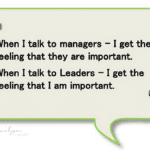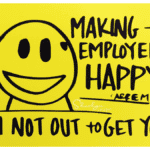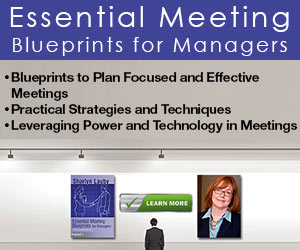Over the past couple of weeks, I’ve seen two research pieces about what employees want. The first is Quantum Workplace’s “2014 Recognition Trends Report” and the other is the Society for Human Resource Management’s (SHRM) “Employee Job Satisfaction and Engagement: The Road to Economic Recovery”. Both reports are excellent and you should download them. And study them. Carefully.
What struck me as I was reading was the focus on employee compensation. Yes, employee pay is the number one issue facing companies today. Employee pay is linked to job satisfaction and recognition – regardless of generation. Boomers, GenXers, and Millennials all agree on this one.
Even engaged and disengaged employees agree that pay increases are the number one form of recognition. Tenure with the organization doesn’t matter. Nor does position title or department. Oh and in case you were wondering, people of different gender, race, ethnicity, and education feel the same way. It’s about the pay check.
As a human resources professional, I have said for years “money isn’t a top motivator”. Well guess what? That’s changed. After reading these reports, it’s hard to ignore that money is THE motivator. If companies want employees to focus on being productive, owning their career development, and having a higher sense of engagement, then they need to figure out how to take the money conversation off the table. Only then will the conversation shift to leadership development, telework, and team building.
In the past, I’ve written many posts about the need for employees to brush up their skills and sell their value to get better pay. You can see a few of them here, here, and here. Today I want to take a different approach and ask the question, “What are companies offering that justifies not paying competitive salaries?”
Sure, there will be people who are not motivated by money. They will take a job because the company offers a unique perk like free travel or great discounts on clothes. Others will work for less pay because the company provides work experiences they couldn’t obtain any other way.
[Tweet “Yes, employee pay is the number one issue facing companies today”]
But if you’re a company that doesn’t offer either of those things – great perks or awesome work experience opportunities – then what are you offering that would make employees not think about pay?
As the labor market is getting tougher, companies will be competing for talent. I can see in the not so distant future a candidate saying, “I have offers from other companies – at a higher salary. Why should I come to work for you?” Organizations need to be prepared to answer the question.








Paul Hebert says
Unfortunately – these studies should not be taken at face value. The truth is that ANY self-reported information on what motivates anyone will ALWAYS show cash as the #1 answer. In fact research as shown that:
“Despite this strong preference for cash, the gift in-kind has a substantially stronger effect on workers’ productivity than the cash gift. This suggests that the monetary value of the gift is of lesser importance than its signaling character.”
In other words – we say we want cash – but we work harder for recognition.
Cash creates mercenaries. No organization focused on the long-term wants mercenaries.
For more info – I posted on these results a few weeks back: http://www.symbolist.com/blog/2014/05/cash-vs-recognition-breech/
John Ludike says
Recognition in form of endless trophies and Rah, Rah ceremonies quickly turns into superficial ritual if recognition if recognition doesn’t come with large financial incentive. With CEO pay and benefit packages now on average being 200 to 300 times that of average employee organisations need to reflect carefly on productivity and engagement trends per employee as these Gini coefficient drifts are disparaging.
Paul Hebert says
John – agree with you in general – if recognition is badly designed it doesn’t help. But large financial incentives are not the way to build long term engagement – the data doesn’t support it. It simply creates the same problem we have in the C-Suite – more, more, more. No one is loyal to cash. In fact, it teaches people to not be loyal.
Sharlyn Lauby says
Thanks for the comments. I think we all agree: recognition is and will always be important. But it’s also not a substitute for compensation. In my experience, when employees feel they are making a fair wage, while they will always take more money…it doesn’t show up as #1 on as many lists. I see the money issue is just coming up with too much frequency these days and we need to pay attention.
As John mentioned, it’s hard to ignore the reports of CEOs getting multi-million dollar pay increases and employee wages not keeping up with the cost of living. That being said, if companies aren’t in a position to raise the salaries of their employees, then they should start finding ways to add perks, benefits, and recognition that ease the burden of an employee’s expenses (i.e. flexible work, relaxed dress code, etc.)
meredith says
Money and recognition are key motivators for employees. However, I think the weight these to motivators carry varies depending on the generation of the worker.
Recognition by an organization should not only be praise and cheers but awareness of their employees lifestyles and interests.
For example, as an young professional if I had the opportunity to work from home a couple days of the week that would help with my satisfaction.